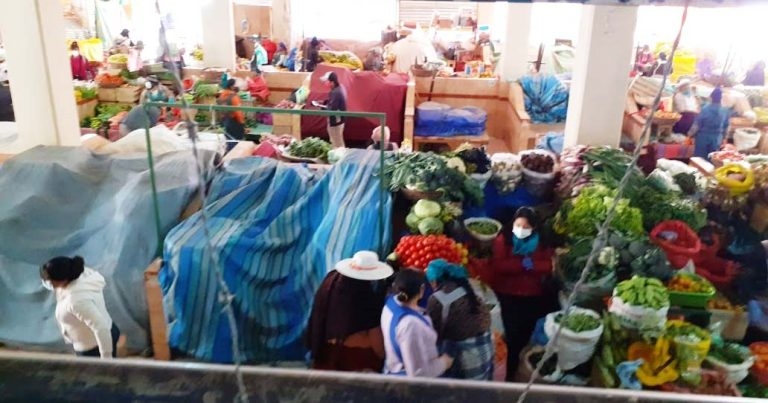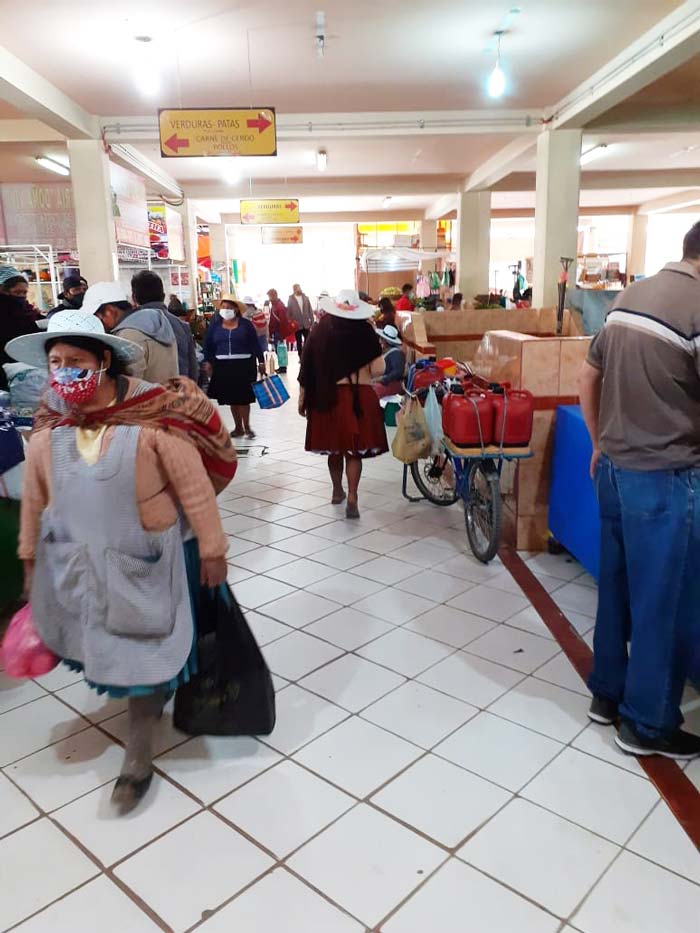16 Oct 2020
Project led by college to reduce transmission in traditional food markets in Bolivia and Peru awarded £749,735 of funding.

A food market in Sabaca, Bolivia. Image © Christine Leyns
A project led by RVC researchers seeking to reduce COVID-19 transmission has been awarded £749,735 of funding.
In the project, researchers will co-design bespoke plans to reduce transmission of the virus in Sacaba, Bolivia and Huancayo, Peru, and will also share their experiences online to help efforts in other countries.

Contributing researchers are from the RVC, London School of Hygiene and Tropical Medicine, Universidad Peruana Cayetano Heredia, Universidad Nacional Mayor de San Marcos and Universidad Mayor de San Simón.
The funding has come from the National Institute for Health Research (NIHR), and UK Research and Innovation’s (UKRI) Global Effort on COVID-19 Health Research. Researchers pinpointed priority targets disproportionately affected by COVID-19, and both Peru and Bolivia had high death rates.
While traditional food markets are a hotbed for COVID-19 spread, they play important economic socio-cultural roles in many countries.
A team led by Javier Guitian, professor of veterinary public health at the RVC, will work with local health services, and pilot a health promotion plan for market sellers and their families that includes early detection and follow-up of COVID-19 infections.
It is hoped the project will help in the introduction of effective risk mitigation programmes that respect the role of traditional markets.
Prof Guitian said: “Bolivia and Peru have been severely hit by the COVID-19 pandemic.
“The more vulnerable sectors of the society have been affected – not only by the pandemic itself, but also by control measures such as school closures, strict lockdowns and collapse of health care services, which disproportionately affected those with fewer resources who largely rely on the informal economy and lack a safety net.
“In this project, scientists will work together with market sellers to identify ways of mitigating COVID-19 transmission that are not only effective, but also sensitive to their needs and values, and to the critical economic and sociocultural role of traditional food markets.”